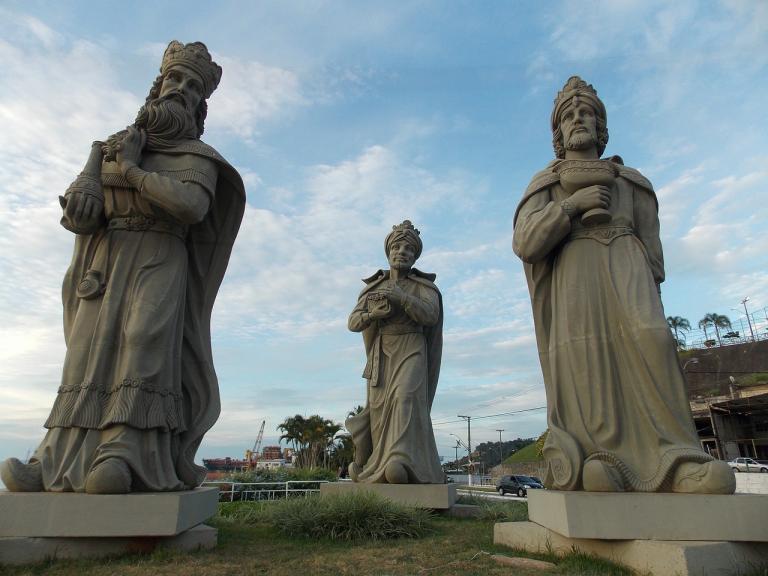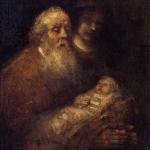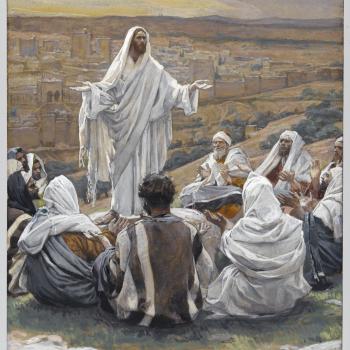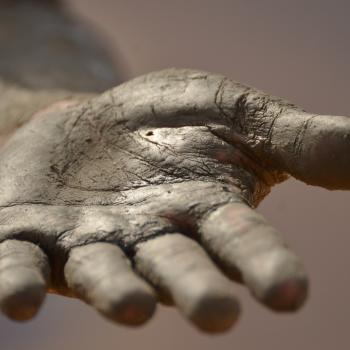As we celebrate the season of Epiphany–of revelation, of universality, of adoration–we follow in the footsteps of the three wise men (and their inevitable companions on the road: servants, armed guards, animal caregivers, etc.).
Much has been written on the symbolism of the three gifts they brought: gold, frankincense, and myrrh. “Bernard suggests that the magi gave the gold to assist the mother and child in their poverty, the incense as a perfume to counteract the fetid odor of the stable, and the myrrh as an unguent for the infant, to soothe and strengthen his weak limbs.” So Ludolph reports.
More interesting, perhaps, are Ludolph’s reflections on the gift-giving that goes on between the baby Jesus and your own soul as you approach him.
“Since we have offered to Christ what is his let us also offer what is ours. The fact that we believe he is King, God, and Man is his gift to us; but there are three things we have received from God that can be our gift to him. We have within us three gifts that are pleasing to God, and these we offer him. The first is our soul, symbolized by gold: there is nothing more precious and noble than gold, and there is nothing more valuable, fine, and beautiful than the soul considered in the presence of God. The second is our body, symbolized by myrrh: myrrh is bitter, and the body is made bitter by self-discipline and suffering. The third is holy and honorable conduct in both soul and body: this is symbolized by incense, for as incense only releases its aroma when it is burned by fire, so our manner of living cannot send up its fragrance to God unless it is burned by the fire of tribulation.”














